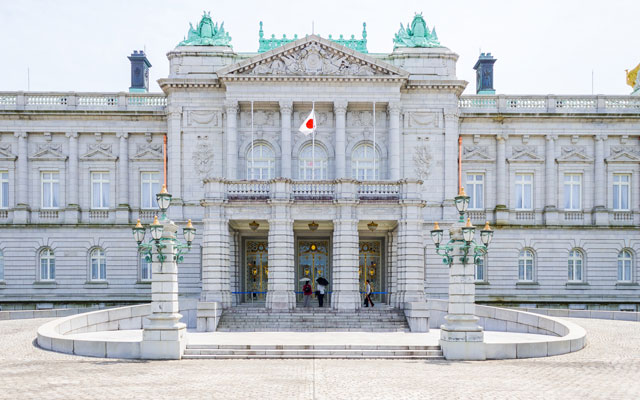A need for indelible and impressive experiences has prompted event planners to seek out more unique and historic venues.
Buoyed by bookings of its traditional venues, first made available for business events in 2016, Tokyo is focusing on promotion of these venues and the addition of new ones in 2018.
Incentive visitors to Japan doubled year-on-year in 2017, according to the Japan National Tourism Organization (JNTO) and, as unique venues are an important consideration for incentive groups, Tokyo hopes to entice more business with its efforts.

The largest growth in 2017 over 2016 was from China and Singapore, which brought double the number of group – as well as larger groups. Globally, the peak season for incentive travel to Japan is October and November, but March is also popular among South-east Asian countries due to the cherry blossom season.
Venues in demand usually offer a unique experience, showcasing Japanese culture, tradition or way of life.
They include one of Japan’s most revered buildings, Akasaka Palace, which provides accommodation for official guests of the Japanese government, as well as the Tokyo Metropolitan Art Museum, Edo-Tokyo Open-air Architectural Museum, Nogi Shrine and Daikyo Temple.
More sites are being made available regularly. Following the success of an inaugural business event at Tokyo’s 300-year-old Hamarikyu Gardens in 2017, the site became popular as a unique venue in 2018.
The garden, which once belonged to Japan’s most powerful samurai lord, is “a perfect location for evening parties and drink receptions,” thanks to its location among many of the city’s four- and five-star hotels.
According to Hironobu Fujimura, director of sales on the business events team at Tokyo Convention & Visitors Bureau (TCVB), the TCVB and Tokyo Metropolitan Government (TMG) see maximising Tokyo’s distinctive venues as key to bringing more business events to the capital. And expectations of incentive buyers are high.
“Year after year, the needs of the parties at such exceptional venues are increasing, especially for the incentive travel market. They always need the ‘Wow’ factor and a once-in-a-lifetime experience for their attendees,” explained Fujimura.
In response, the TCVB launched a booklet, Tokyo: More Ideas for Meetings & Incentives, in November 2017. It divides incentive opportunities in the capital into five areas: CSR, culture, teamwork, enterprise and technology, while offering Tokyo as a city in which to connect, learn and contribute.
Incentive groups can engage in a wide range of activities, from pruning bonsai trees with a world-famous expert and doing yoga in a temple. On offer are also visits to successful Japanese companies for learning opportunities or for a sneak preview of cutting-edge technology.
“Increasingly, incentive groups visit Tokyo to gain insight that they can apply to their own companies,” said Fujimura, adding that the five topics covered are those that the TCVB get the most enquiries about.
TCVB also launched a new website to introduce areas in Tokyo that are convenient for business events planners due to their concentration of venues, hotels, restaurants and shops. According to the website, Roppongi is a popular option because its “luxury hotels and unique venues are perfect for holding incentive events”.
Building on this, the TCVB and TMG launched a Unique Venue Service Center in May 2018, to encourage the use of unique venues in Tokyo.
Staff at the centre, near Shinjuku, will introduce designated unique venue facilities, propose event plans, provide coordination support with appropriate administrative agencies required for running events in these spaces, and provide information about venue operators, catering and other services.
Meanwhile, JNTO is continuing to host the Japan Best Incentive Awards to recognise and share best practice in incentive travel.
“One of last year’s attendees presented a tour in which teambuilding activities for a group of 360 participants included tasting unrefined sake in a sake brewing workshop, and a kimono photo competition using Instagram, which landed them the Best Creative Planning Award,” shared Etsuko Kawasaki, executive director of the JNTO.
New openings in recent months are making options for incentive planners more plentiful. They include luxury shopping complex Ginza Six, which has more than 10 high-end restaurants, a banquet hall, a 480-seat Noh Theater and a 4,000m2 rooftop garden.
With Japan hosting the Rugby World Cup and G20 Summit in 2019 as well as the Olympic and Paralympics in 2020, a host of new venues, products and experiences are expected to be launched in Tokyo. The capital’s business events market is also getting ready for the likely rise in demand.
According to Kawasaki, JNTO has already received some enquiries from event professionals who aim to organise meetings related to these global events.





















